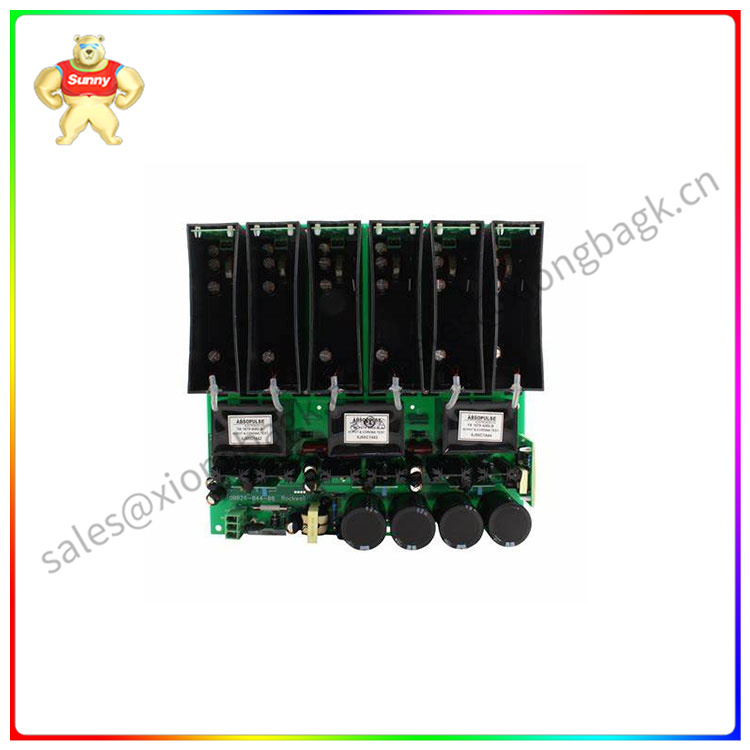The following is the relevant text of the report:
Torch Technology: AMR robots and PMC systems lead the innovation of production automation
Torch Technology, founded in 2018, is an innovative technology enterprise focusing on AMR (autonomous mobile Robot) hardware and software and supporting cloud services. Its RaaS model (Robot as a service) greatly reduces the threshold for enterprises to introduce AMR through monthly/quarterly/annual payment. Torch Technology is committed to meeting the digital intelligent transformation needs of many scenarios such as smart logistics, intelligent manufacturing, commercial cleaning, hotel and catering, and helping different industries release their productivity potential.
Digital background
80026-044-06-R
In the traditional smart factory, enterprises often face multiple challenges. High construction and operating costs are the primary pain points, due to the purchase and maintenance of hardware equipment, software customization and upgrades require a large amount of capital investment. At the same time, high labor costs also increase the burden of enterprises, especially in the process of material flow and loading and unloading, which are still inseparable from manual operation, resulting in the inefficient use of human resources, and long-term repetitive work is easy to cause fatigue of employees, thus affecting production efficiency and product quality. In addition, the non-standardization of production and management is also an important problem, the human factor makes the production process difficult to achieve complete standardization, increasing the difficulty of management and the instability of production quality. Finally, quality control is difficult, and the quality control of traditional production mode mainly relies on manual sampling, which is inefficient and easy to miss and misdetect, which makes it difficult to ensure product quality continuously. Therefore, when Torch Technology builds a smart manufacturing plant internally, it plans to improve the traditional smart factory solution and use a new model to solve these pain points that affect production efficiency, increase operating costs and quality control difficulties.
(Torch Star Technology Tongling production base)
Digital practice
Referring to the construction experience of Lenovo’s intelligent factory, Torch Technology has adopted a series of innovative practices in intelligent transformation. After successfully running through the operation mode of intelligent manufacturing plant inside the company, it has transformed its accumulated rich experience into a set of external service capabilities.

80026-044-06-R
Using the production method of the station, the AMR robot realizes the automatic flow of materials. Each CELL production unit focuses on a single task, and material flow between cells does not rely on traditional assembly lines or fixed-path automated guided vehicles (AGVs). This flow is completed by Torch’s self-developed robotic system, thus achieving a fully automated process from physical movement to loading and unloading. In the production process, the robot decides when to trigger the flow of materials based on the results of the calculation of the system, for example, processing a certain number of products after a single shipment. In addition, the robotic system is equipped with automatic rollers and racks for automatic loading and unloading of materials. These robots not only play a role in the production process, but also provide support during the component testing phase. During testing, any nonconforming material is identified by the system and prevented from entering the subsequent process, instead being sent directly to the exception processing site.
80026-044-06-R
Through the PMC (Planning Material Control) system, the production planning and material supply of the factory are accurately controlled. After receiving an order, the PMC system automatically plans the parts needed, generates the purchase order, estimates the arrival time, and feeds the information back to the backend system. Actions’ robot control system operates according to the material flow plan provided by the PMC system to ensure that raw materials, middleware, and semi-finished products are transferred to the corresponding stations according to the established plan, and the final assembly is completed. This transformational practice not only improves production efficiency, but also reduces material backlog, ensuring production flexibility and response speed.
Digital effectiveness
With its rich experience in the construction of intelligent production lines, Actions Technology has developed the ability to provide customers with intelligent transformation services, which can effectively help customers reduce costs and improve efficiency. The specific results are: first, human resources optimization. In a traditional production line, 30 to 40 employees are required for material transfer, station transfer, and loading and unloading. Through the implementation of fully automated processes, these links can realize the complete replacement of human resources and achieve automated production with zero personnel input. Second, production and management standardization. The introduction of robotics has facilitated the standardization of production processes and management, significantly reducing the professional requirements for senior management positions, thereby reducing management costs and reducing the reliance on the professional skills of managers. Third, improve production quality and efficiency. Through detailed records of work results, factories can perform more accurate quality control, improve product quality, and lay a solid data foundation for continuous iteration and optimization of quality control. Fourth, reduce operating costs. In terms of cost savings, Actions’ intelligent transformation solutions can save more than 30% of customers’ costs. For example, in the logistics and warehousing industry in Japan, the cost of building and operating a 10,000 square meter warehouse with traditional methods is about 50 million yen, and the cost can be significantly reduced to 30 million yen after the adoption of Actions Technology AMR automation solutions, reducing the cost by about half, significantly reducing the construction and operating costs.
 中文版
中文版




